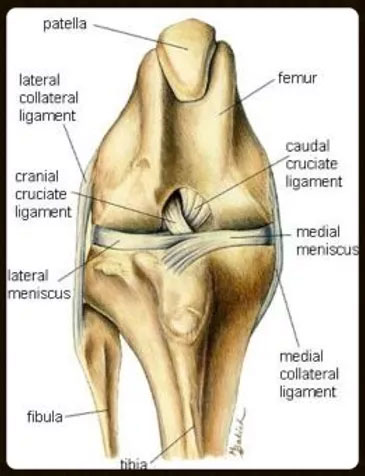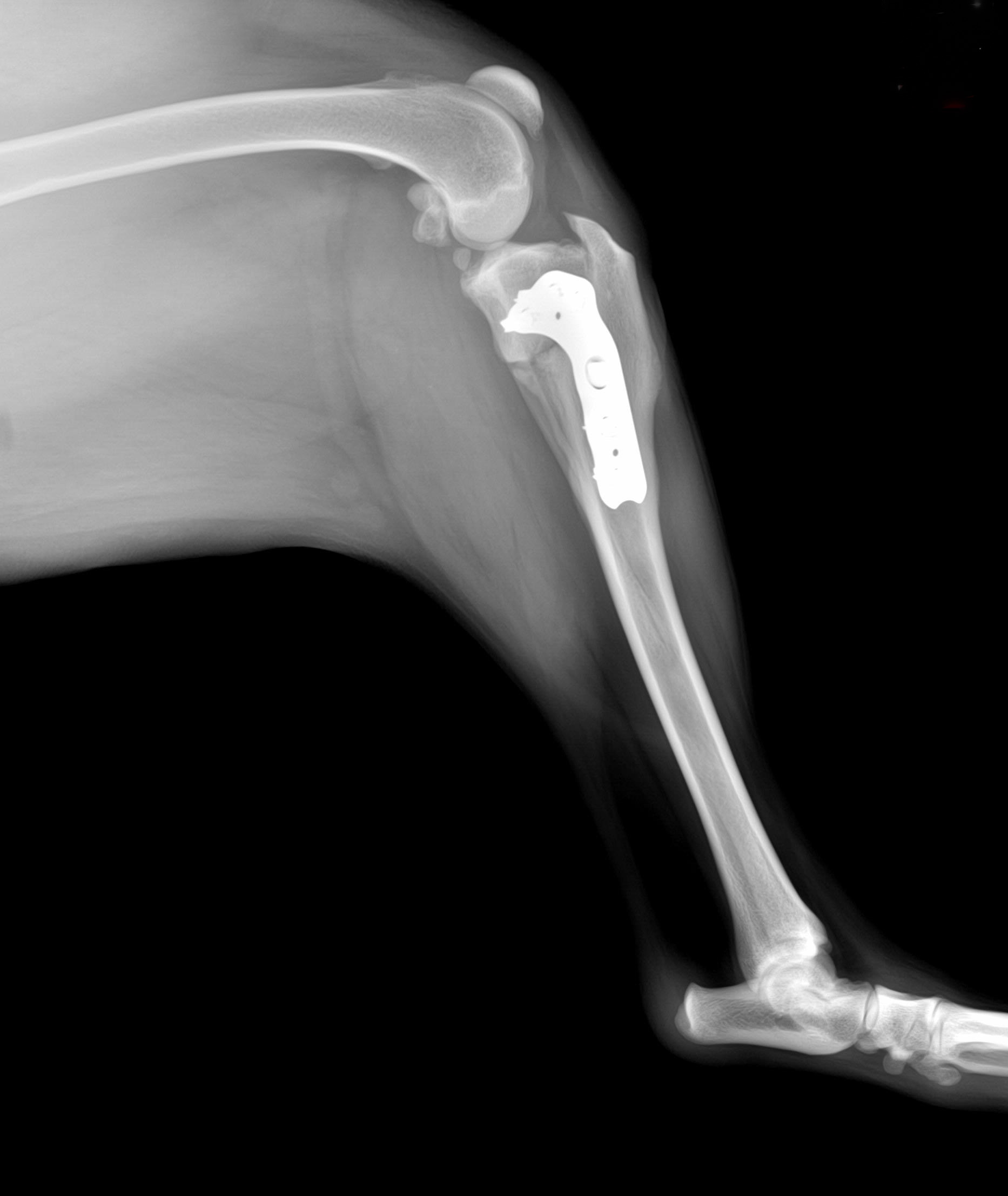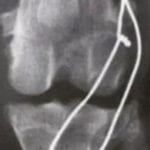Pet Torn Cruciate Ligament (ACL) Surgery
West Suburban’s Dr. Gary Thompson is a Board Certified Specialist in Canine and Feline Practice whose areas of professional interest include orthopedics and minimally-invasive surgery. Dr. Thompson is the only veterinarian in the Toledo area performing three procedures that are designed to help dogs with cruciate injuries of the knee: Tibial Plateau Leveling Osteotomy (TPLO), CORA-based Leveling Osteotomy (CBLO), and Tibial Tuberosity Advancement (TTA). He has performed over 5000 of these surgeries on dogs of all sizes and on a wide range of ages and conditions, including on dozens of area veterinarians’ dogs.
Pet Torn Cruciate Ligament Surgery in Toledo, OH
A ruptured ligament in the knee is called an anterior cruciate ligament (ACL) in humans or cranial cruciate ligament (CrCl) in dogs; this is one of the most common orthopedic problems that our furry family members can encounter.

WHAT DOES A TORN CRANIAL CRUCIATE LIGAMENT (CRCL) MEAN?
The Cranial Cruciate Ligament (CrCl or ACL) is the main ligament stabilizing the knee joint. It connects the femur (thigh bone) to the tibia (shin bone) and prevents the lower leg from sliding forward. Tearing of the ligament can occur in young and old dogs alike, and short-term is a very painful injury that, if untreated, leads to severe arthritic changes in the knee.
WHAT ARE THE OPTIONS TO TREAT A TORN CRANIAL CRUCIATE LIGAMENT?
There are two main and effective methods to provide stability to the canine knee. A Tibial Plateau Leveling Osteotomy (TPLO) or a lateral suture/imbrications (LSS). Our Doctors will make a recommendation of which surgery is best for your dog and why.
TPLO (TIBIAL PLATEAU LEVELING OSTEOTOMY)

The TPLO neutralizes the thrust of the knee by rotating the tibial plateau and making it more level, essentially making the CrCl unnecessary. The TPLO has been shown to minimize the progression of arthritis and is the gold standard for treatment.
For more detailed information please visit: TPLOinfo.com

REFERRAL SURGICAL SERVICES
Have you been referred to us by your primary veterinarian? Please read our referral policy and bring the following to your consultation:
- Any recent radiographs or blood work from your family veterinarian
- Any current medications your pet is taking
Still Need To Schedule Your Consultation?
for more information



